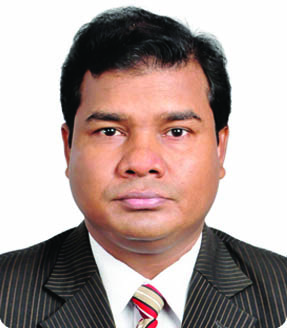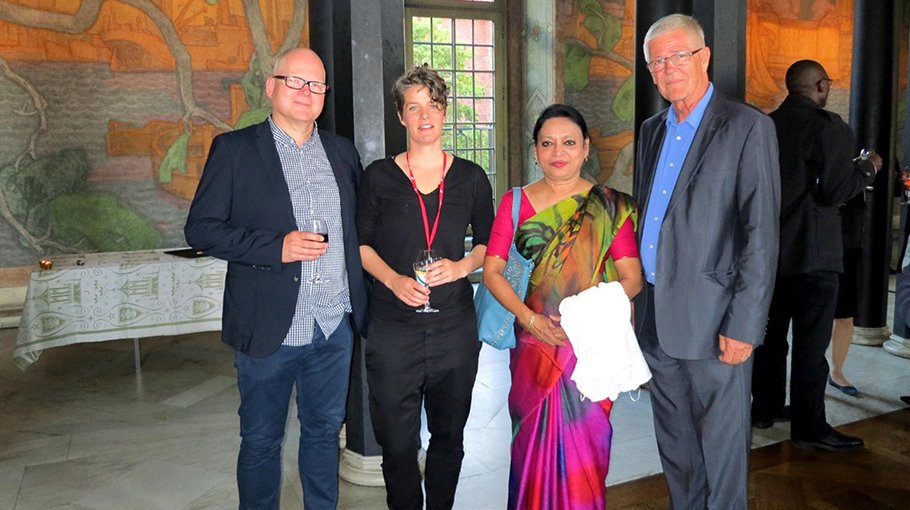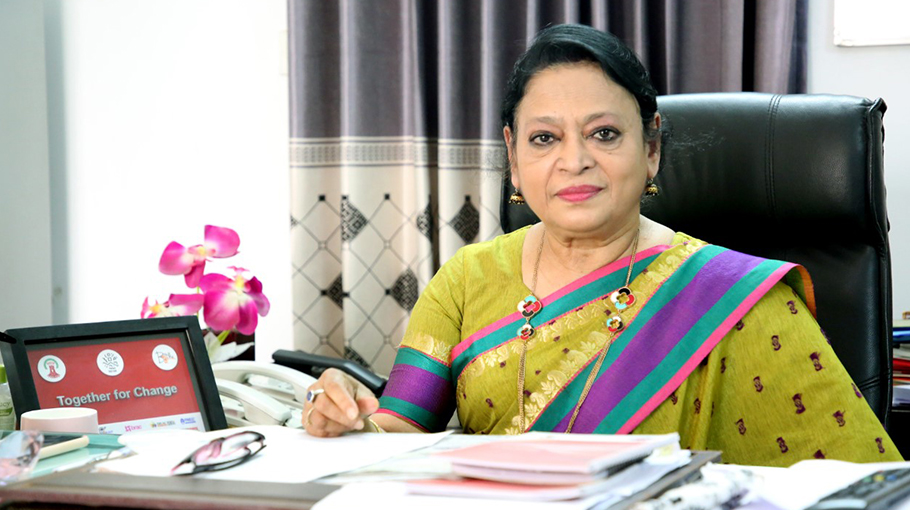RHSTEP IS WORKING TO CONTRIBUTE TO ACHIEVING SDG TARGETS
Bangladesh makes significant progress in RH, challenges still there: Qazi Suraiya Sultana

Bangladesh has significantly improved on providing family planning (FP) services by reducing the gaps of many unmet needs of reproductive health.
Such achievement happened through joint collaboration and cooperation of the government, NGO and private service providers across the country, said Qazi Suraiya Sultana, Executive Director of RHSTEP (Reproductive Health Services, Training and Education Program)in an exclusive interview with BP.
She said RHSTEP is working to contribute to achieving the SDG targets. As a health-focused rights organization, RHSTEP also feels to address the major challenges.
The RHSTEP Executive Director described the contemporary situation of the country's reproductive health (RH) sector development, its challenges and future needs while replying to a set of queries, made by BP.
The excerpts of her interview are produced for the valued readers:
Bangladesh Post: As an expert in the country’s reproductive health sector, how would you evaluate the success in the said field, mentioning the contribution of the non-government initiatives across the country?
Qazi Suraiya Sultana (QSS):The success of Bangladesh in health is highly commended by international experts through awarding the country several times. We are continuously upgrading our health status. The life expectancy increased at birth by seven years for men and 10 years for women between 2000 and 2017.
The maternal mortality rate (MMR) and morbidity rate has been decreased by about 45 percentcompared to the MMR in 2001 from 322 in 1991 to 176 in 2015. Abortion related maternal mortality has been reduced by almost 80 percent in 2010 compared to the situation in in 1991.

RHSTEP Executive Director Qazi Suraiya Sultana visits Sweden to attend a meeting.
The under-5 child mortality rate has declined from 88 to 45 per thousand live births during 1999-2018 period. Bangladesh received the “UN MDG Award 2010” for its achievement in the reduction of child mortality. Prime Minister Sheikh Hasinawas awarded “Vaccine Hero” twice by GAVI alliance for outstanding vaccination activities of the health systems that prevent deaths of children and mothers as well.
Bangladesh also achieved a rapid reduction of child malnutrition in the last two decades and achieved MDG target for reduction of underweight among under-5 children. The health education and improved income of people of the country help in getting such achievement.
The unmet need for FP methods has been reduced to 12 percent in 2017 from 13 percent in 2015. This obviously happened through active collaboration and cooperation of the government, NGO and private service providers across the country.
Such as RHSTEP is working in 21 districts of the country in 21 public hospitals for providing sexual reproductive health training, services and education of service recipients since 1983. That has contributed to developing the skills of service providers and ensuring MR services in almost every corner of the country largely.
So, women are highly supported by this program and safe motherhood services are literally available at their doorstep. Besides, RHSTEP is providing SRHR services including Menstrual Regulation and post-abortion care services in its service centers in public hospitals that contributed tothe reduction of maternal mortality, especially in the reduction of abortion-related mortality in the country.
On the other hand, it substantially increasedthe use of contraceptives among the womenfolk that is contributing tothe reduction of unmet need of FP methods as well as keeping the family size within their limit.
Bangladesh Post: In this connection, would you please brief us on the challenges, usually you face, as a non-government organization in the process of implementing your set programs?
Qazi Suraiya Sultana: With less than a decade left in attaining sustainable development goals (SDGs), Bangladesh has many challenges ahead of it such as, reducing adolescent childbirth to 50 per 1000 population in the age group of 10-19 which will be hard to achieve if the chain of early marriage is not pulled through, which eventually eliminate future health hazards as well.
Informed decision-making of women about their sexual and reproductive health and choices will also be a challenge as it involves awareness and practice level implications along with ensuring access and availability of related commodities and services.
Fostering the usage of modern contraceptives is vital in order to attain the target of satisfaction among acceptors (users). Sinking maternal mortality rate in 70 per 100,000 life birth will be one of the biggest challenges for Bangladesh. However, RHSTEP is also working to contribute in achieving SDG targets.
As a health-focused rights organization, RHSTEP also feels to address the challenges. However, considering the gravity of those challenges RHSTEP has a very limited resources to serve the people. Continuous funding from different sources is not available to run the project activities smoothly and continuously. Donor funding flow is reducing with time. Alternative sources like government and business groups are not coming adequately to support this charity. Our education system is not life skills-oriented rather knowledge-oriented. Misinterpretation of religious viewpoints is another challenge to address.
Bangladesh Post: What about the policy support from the government in ensuring sustainable development in this field?
Qazi Suraiya Sultana: Though there is an anti-abortion law, Bangladesh is a country that established a method of Menstrual Regulation (MR) in its health system since its inception. Bangladesh should be lauded for initiating this policy and program countrywide. The government is positive to address the challenges as they have developed National guideline as well as taken necessary policy changes from time to time such as the extension of the gestational period from 09 weeks to 12 weeks; introducing MR through medicines up to 09 weeks.
Making available MRM kit through pharmacies; diversified training opportunity for Nurses and midwives; reproductive health education from sixth grade of formal schooling.
However, to make the program sustainable, the government may consider including SRHR component in its health and family welfare ministry for providing comprehensive support to the government as well as to the other NGO and private partners of health. Mapping of such organizations may be prepared.
Bangladesh Post: As we know that many organizations like RHSTEP are surviving on aid or assistance from international donor agencies. So please tell us about the long-term sustainability of your ongoing programs in case development partners opt-out?
Qazi Suraiya Sultana: RHSTEP emerged with a philanthropic philosophy of the governmentto support the womenfolk to continue their menstrual health. RHSTEP never slipped away from this philosophy and continued its efforts to serve the women, rather included other parts of the society and population in its activities to improve the quality of health for all.
To run such a high volume of programsthere is an obvious need for funding from donors. At the very beginning, the government provided support to this program. But then due to the fund crisis, the government helped the organization to get support from international donors/development partners to continue the program.
That legacy still continues. However, the programmatic sustainability like skills of service providers, knowledge imparted to the community,etc will sustain for a long time. However, Financial Sustainability is not easy to achieve within a short time due to the nature of the organization.
RHSTEP had the experience of ups and downs of fund flow in the past. From that experience, RHSTEP has developed its strategic plan for sustainability. But whatever the plan, it needs to be funded adequately and implemented efficiently with impact or return. The donor needs to support for a time; The government should support with policy and priority of the organizational sustainability then only an organization like RHSTEP can sustain for long.



